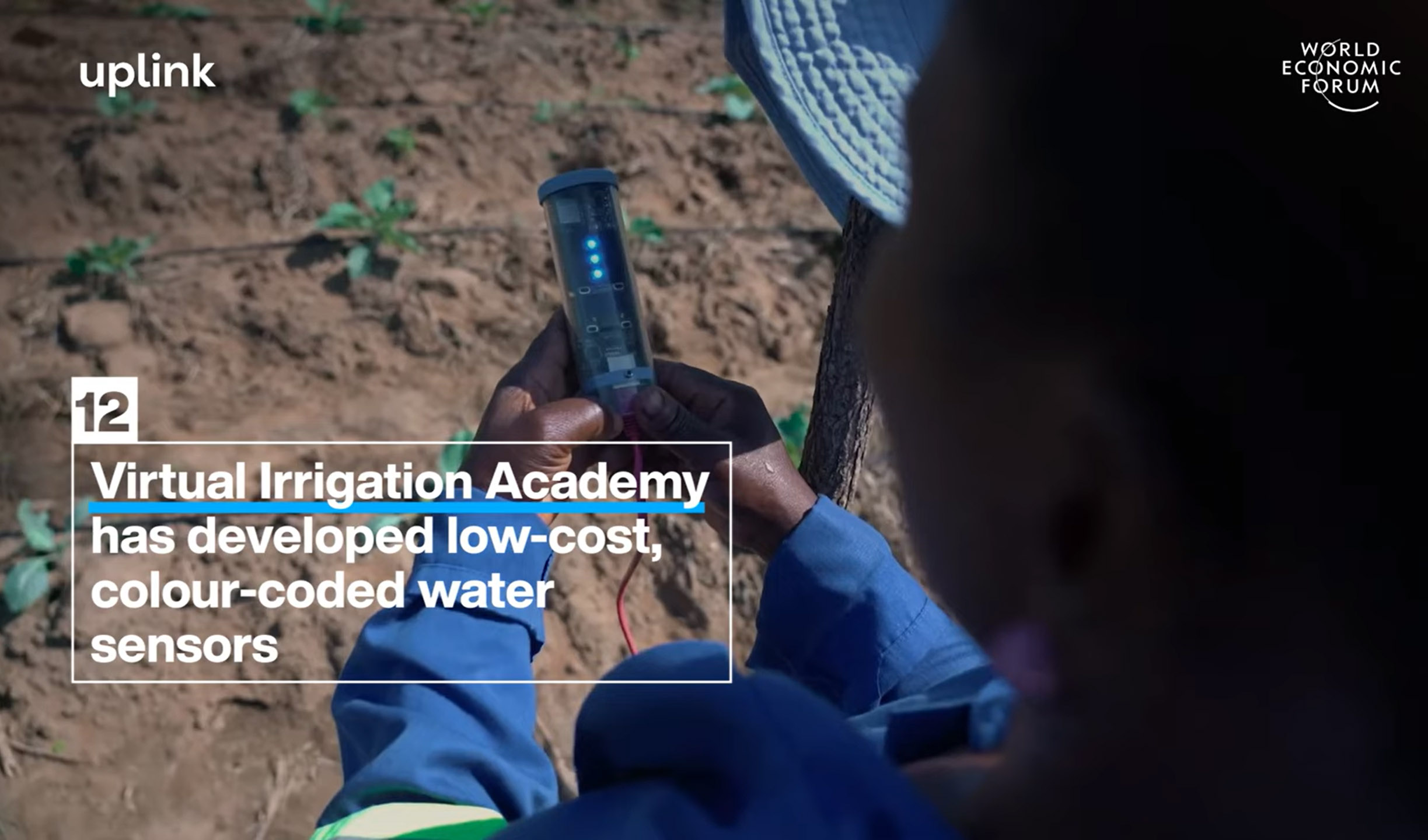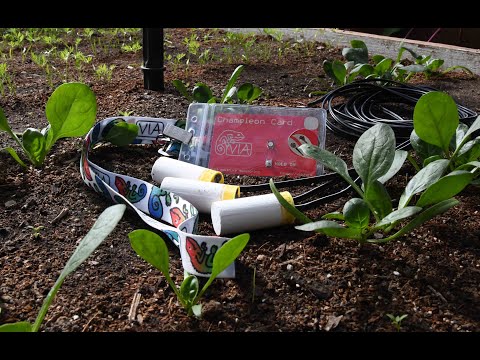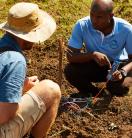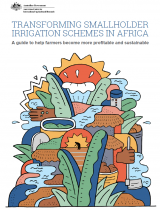Virtual Irrigation Academy wins global climate-smart ag award

An ACIAR-funded innovation is part of a winning cohort of technologies named by the World Economic Forum as part of an initiative to improve farming lives through climate-smart agriculture.
The Virtual Irrigation Academy (VIA) was named as one of 12 innovations to win the Smarter Climate Farmers Challenge, announced recently by the World Economic Forum’s open innovation platform Uplink.
The competition called for innovative climate change solutions to improve food production, promote better living standards, respond to the impacts of climate change and lead to the efficient care of the planet’s resources within food ecosystems.
Led by the CSIRO’s Dr Richard Stirzaker, the VIA was developed through long-running ACIAR investment since 2015 and combines irrigation monitoring tools, like the Chameleon Soil Water Sensor, with an online communication and learning system to improve agricultural irrigation water productivity across Malawi, South Africa, and Tanzania.
Winners of the Smarter Climate Farmers Challenge
By increasing water management knowledge and providing easy-to-use irrigation tools, the VIA initiative has empowered smallholder farmers to improve crop yields, halve water usage and significantly reduce conflict between upstream and downstream users.
In Tanzania, VIA technology reduced irrigation time by as much as 65%, allowing farmers to focus on other tasks to improve household incomes.
ACIAR Project Leader and Principal Scientist at CSIRO, Dr Richard Stirzaker, said that the VIA has empowered vulnerable rural communities to adapt to the worsening impacts of climate change.
‘Fresh water is a quickly dwindling resource. The worsening impacts of climate change will see smallholders face increased water stress and insecurity. We must invest and innovate with these farming communities and provide the knowledge and tools so they can meet the challenges of tomorrow,’ said Dr Stirzaker.
‘The VIA has given farmers low-cost, user-friendly tools that connect them to a wider platform of knowledge, empowering farmers to learn to solve their own problems using their own resources.
‘This has improved food security, saved water and reduced conflict. It’s an honour to be recognised by the World Economic Forum for this achievement, and I hope the recognition will lead to even more farmers joining our academy.’
To date, more than 50,000 Chameleon Soil Water Sensors have been distributed across more than 22 countries. In 2022, the Virtual Irrigation Academy became a not-for-profit entity, with the explicit purpose of serving smallholder irrigators earning less than $5 per day.
ACIAR Research Program Manager, Water, Dr Neil Lazarow, said the VIA and its associated technologies are a prime example of how long-term investment and international research partnerships brokered by ACIAR can underpin significant innovation.
‘ACIAR has a strong track record of brokering and investing in projects that lead to innovation. For innovation to work, the new technology must be understood, affordable and accessible, and trusted by the people who benefit the most from its development,' said Dr Lazarow.
‘The Chameleon Soil Water Sensor is one of the most novel and transformative pieces of technology to arise from ACIAR-supported research, largely because the technology is supported and contextualised by the VIA; a people-centric learning framework empowering farmers to make their own decisions.
‘ACIAR has been working with CSIRO and Dr Stirzaker on this technology since 2012, and we’re proud to see it recognised by the World Economic Forum; truly a testament to how science partnerships can reduce poverty and enhance sustainable agricultural development.'
Learn more about the VIA and watch the below Uplink video announcing the winners of the Smarter Climate Farmers Challenge.






